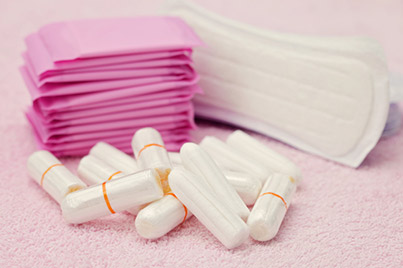Period — End of Sentence

April 11, 2019
Period – End of Sentence, a documentary, nominated for the 91st Academy Awards in the Short Documentary category, won the Oscar for the best Documentary short film. Period tells the story of women in rural India fighting for menstrual equality in a place where periods still face extreme disgrace. For generations, women didn’t have access to sanitary pads, which lead to health problems and girls missing school or dropping out entirely from school or work.
The film also introduces the audience to an Indian man who has invented a machine that makes sanitary pads. The equipment isn’t technologically advanced, but it is functional. When a sanitary pad machine is in the village, the women learn to build and market their own pads. “They name their brand “FLY,” because they want women “to soar.”
India certainly has its issues, as all countries do, but this documentary is kick-starting a fresh story, one that focuses on positive changes in the country.
The menstrual cycle is a process experienced by nearly every female at one point in their life cycle. In the olden days, a young lady would undergo her first menstruation in her teens or early twenties. In recent times, however, some begin menstruating as early as nine.
When interviewing male students at Cartersville High about things related to menstrual cycle, most tried to immediately change the subject. Other boys tried to engage with the idea, but then confessed they didn’t know much about periods. Then they would change the subject to something with which they were more familiar.
When I asked a few female friends about the topic, the most common comment was, “I am embarrassed when my boyfriend or any male I know sees where I keep my sanitary products.” It’s almost like they think “It is a girls’ problem, let them deal with it privately.”
It’s interesting that so much embarrassment and awkwardness surrounds such a natural monthly occurrence, one experienced at some point by half the population.
Women from all different cultures have been made to feel shame about their periods. In Italy, women aren’t meant to make pasta sauce if it is “that time of the month.” In Nepal, women must sleep in a cattle shed overnight and aren’t allowed to cook while on their periods. For four days a month, the man will take over the cooking. The UK people believed that dough wouldn’t rise if a woman tried to make bread while menstruating.
There isn’t anything wrong or unclean about what women’s bodies are designed for do. No female should ever be silenced or shamed because of their body and its functions. Periods are a sign that a female’s body is able to conceive and bear children, a difficult and painful sacrifice for the continuation of the human race. Why must a woman be quieted or embarrassed about menstruation?
It is amazing that a film about periods just won an Oscar, but it has. And if that isn’t progress, I don’t know what is. There is hope that the advancements made toward open and shame-free discussions will continue. Because, as the documentary states in its concluding line:
“The strongest creature created by God in the world… not the lion, not the elephant, not the tiger. The girl.” There is definitely no shame in THAT.


